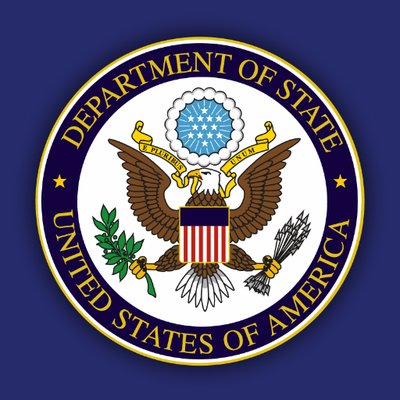The ultimate game that Trump will be playing with China will be a game of Chicken in trade. The ultimate question is who will blink first.
The most puzzling question at this moment of global uncertainty with demagogues rising across the world will be the President-elect’s evolving strategic posture toward Beijing. When he enters the White House this January, will President-elect Trump reverse his vitriolic statements and continue Obama’s “engage and hedge” strategy or will he radically alter U.S. foreign policy and clash with China on trade, risking the end of globalization—if not a new cold war? And while the consequentiality of Sino-U.S. relations has been a usual commonplace remark in most bilateral fora, Trump’s call with Taipei has inspired a heated debate on the President-elect’s intentions with most media framing it a gesture of ignorance and uncalculated spontaneity.
Yet, Trump’s unconventional break of historical precedent to talk with President Tsai Ing-wen could be seen as a tactical move in the wider perspective of his formative China strategy. The call is not an irreversible act of hostility toward Beijing nor a breach of the 2nd joint communique of 1979; it is a signal of targeted “wickedly rational madness.” Trump’s strategic chessboard will include China’s core national interests in Taiwan in an effort to win concessions on trade, boost U.S. employment and support his reelection campaign in 2020. This will be compounded by Trump’s idiosyncratic “Madman” image.
Trump is cultivating an intentional Madman image of an unpredictable president
Trump has repeatedly mentioned that unpredictability is an asset for negotiators. He called Obama’s actions to fight ISIS “predictable, “ineffective, and completely lacking the element of surprise. Time and again Trump’s inordinate statements and actions confirm the inability of most analysts to predict his intent. From the rapprochement with Mitt Romney – one of his most caustic critics – to the end of his call for Hillary Clinton’s prosecution, to the discussion on Climate Change with Leonardo Di Caprio, to his willingness to turn the Mexican border mega-wall into a patrolled fence. In addition, while he has called for the end of U.S.’s expensive commitment to Asian Security, Trump in a symbolic gesture, just two days after his election victory, chose to meet with the Japanese Premier Abe to reassure America’s core ally of his future foreign policy design in the Asia-Pacific.
While senior U.S. China experts have called for the avoidance of “surprises” in Sino-U.S. relations, as it increases the mistrust between the two sides and ultimately boosts the risk of confrontation, U.S. presidents in the past have often cultivated an image of unpredictability if not “partial irrationality.” To be sure the “Madman” image is not a new role played by statesmen. Going back to Machiavelli’s classical strategic insights, the theory has been practiced by President Dwight Eisenhower and his Secretary of State John Foster Dulles in “ brinkmanship and massive retaliation strategy.” Ronald Reagan’s Strategic Defense Initiative - when Reagan simply called the Soviets to join the initiative defying every known dogma of strategic deterrence. It was most apparent when Richard Nixon proclaimed to his chief of staff H.R. Haldemann that his goal is to make the Vietnamese believe that he is a madman in the White House willing to go atomic rather than lose the war.
Strategic surprise and an artificially cultivated image of irrationality is a classical strategy in a game of brinkmanship when one side highlights its willingness to “dance too close” to the cliff’s edge and maximize risk, leading its opposition into eventual retreat. Trumps’ discussion with Tsai Ing-wen must be seen through this prism. Trump, a studious businessman, looked back into the strategies of past presidents and found the “Madman” idiosyncrasy compelling for his ultimate goal: to leverage Chinese adamancy over core national interests like the Taiwan issue into an agreement over trade and jobs.
“All politics is local” and it is Trump’s promise on jobs that will determine his reelection chances and can possible silent the growing political dissent of the liberals. To be sure Trump will not “trade Taiwan” to get more market access or a favorable bilateral investment treaty (BIT) from China. The U.S. Congress will not allow it–but he seems willing to challenge some of the current certainties in an effort to urge Beijing into a more open trade policy toward U.S. investors and exporters. Other cards that Trump could play include the “Japanese go nuclear card” and his promise to create a 350-strong mega-vessel navy, which could complicate China’s Anti Access Area Denial strategy (A2AD) in the second and third island chain.
The Schwarzman and Branstad cards
While many analysts had precluded a fatalistically assertive and confrontational posture of Trump toward China, the President elect – as an aspiring Madman – blurred his strategic intentions with the choice of two pro-China business individuals to serve in his administration: Steven Schwarzman and Terry Branstad.
Schwarzman is not only an emperor of Wall-Street and one of the most successful businessmen in the United States, but also a strategic entrepreneur who has cultivated close personal networks with leading businessmen and senior politicians in the Middle Kingdom. With a $200-million-dollar personal donation, Schwarzman reached out to Tsinghua University in Beijing – the alma mater of President Xi Jinping – to create the “Chinese equivalent of the Rhodes Scholars” and shape a generation of future U.S.-China leaders who will facilitate Sino-U.S. cooperation. Getting the permission to establish the Schwarzman college in Tsinghua is not a trivial engagement and this highlights Schwarzman’s trustworthiness with his senior Chinese partners. It is certain that the final decision for the establishment of the College in Tsinghua reached the office of the Chinese president himself, who finally endorsed it.
Governor Terry Branstad is yet another smart Trump choice, and further signals a transactional business relationship to China. Branstad has known President Xi Jinping since his trip to Iowa more than 30 years ago and they have both talked warmly about their friendship and personal appreciation. Iowa, where Branstad has been the longest serving governor, is also a state with significant export openness to China and Branstad has consistently been very active promoting closer Sino-U.S. trade ties.
“It’s the economy stupid”
It is an oxymoron to conclude this article with a quote from Trump’s ideological archenemy, Bill Clinton, but “it’s the economy stupid” is by far the most illustrative quote on Trump’s overarching strategic imperative during his future four years at 1600 Pennsylvania avenue. Trump will go to great lengths in an effort to revive U.S. manufacturing and create new jobs and he is willing to renegotiate the current trade order with China to promote an existential goal for his political survival.
With a mere observation of labor data, it is indisputable that since the opening up of China in early 80’s, millions of U.S. manufacturing jobs have been outsourced across the Pacific. During the early decades of the opening up, China’s low wages, limited if not inexistent labor rights and lack of basic rule of law created attractive labor arbitrage conditions which U.S. industrialists did not fail to notice. U.S. elites became richer, U.S. consumers got access to cheaper products, U.S. citizens breathed fresher air while China’s economy recorded meteoric rise. Yet both sides also suffered; the U.S. lost manufacturing jobs and saw its once flourishing lakeside region turning into a decaying rustbelt while China has suffered an environmental catastrophe with record cancer rates and unlivable cities.
However, since late 2000, U.S. manufacturing jobs have not been exported to China but to machines that are more capable and cost effective. Modern luddites cannot simply reject robotic manufacturing and take the world back into the 1950s. It is also politically difficult to win U.S. elections with an argument against technology, which is imprinted at the cultural DNA of the United States. The easy political call is protectionism.
Trump most certainly is aware of the situation and his approach with China will be transactionally hidden behind the veil of a self-aspired madman. At the core of his demands will be the conclusion of a balanced U.S.-China Bilateral Investment Treaty where Beijing will allow more sectors to receive investment from the U.S. and support investment reciprocity. In addition, Trump is expected to ask for more access for U.S. exporters to the vast Chinese market, offering opportunities for Chinese capital investments in the United States in return. While it is hard to determine the exact impact on employment of a potential Sino-U.S. new trade and investment agreement that will open up the market of China to U.S. exporters, it seems that such an outcome could at list mitigate the loss of manufacturing jobs in the United States. This compounded by jobs in infrastructure construction could allow Trump to run a competitive presidential race in 2020.
China’s strategic response
Strategist at the Zhongnanhai will be frenetically discussing the potential response to a Madman president who wants to revise the trade order that made China an economic behemoth. Assertiveness, conflict, counterbalancing alliances with Europe or other actors and tit-for-tat policy making will be seriously debated reactions to Trump’s bumptiousness, yet the acme of strategy is to lock a competitor in a fait accomplis – to move from the strategic chessboard to the strategic board of Chinese “go.”
China has its own unique opportunity to lock in Trump into a scenario that would make both sides better of: end tax heavens and repatriate investments. With trillions of dollars avoiding taxation in secretive tax havens around the world, China could openly request from the United States and the EU to regulate the lucrative safe havens of global capital. Xi could make that call at the WEF forum in Davos this January – a forum that epitomizes the benefactors of globalization. While such demand seems to conflict with Trump’s declaration for lower taxation on capital, it is actually enhancing it. When tax heavens are regulated trillions of U.S. dollars could repatriate, and Trump’s new tax regime would allow most of the repatriated money to become productive investments in infrastructure and beyond. Trump would turn such an effect into a powerful political slogan for his reelection.
Yet, if history is of any value – the Madman – hypothesis is not uncontested. It worked for Reagan in the Strategic Defense Initiative, it failed in Nixon’s Vietnam gamble and scholars are divided on Eisenhower’s case. However brilliant has Trump been as a demagogue, however charismatic has he been in outcompeting a veteran politician like Hillary Clinton, he needs to be much more cautious and perhaps less adventurous in his approach with Beijing. After all it was a Chinese president who once told his American associate that his biggest nightmare is his potential inability to provide 10 million new jobs to the rural immigrants of China every year. Instead of brinkmanship and calculated surprise – dogmas developed to guide Cold War thinking, the United States, China, and the world would be all much better off with principled statesmanship and diplomatic deliberation dealing with our global commons.

